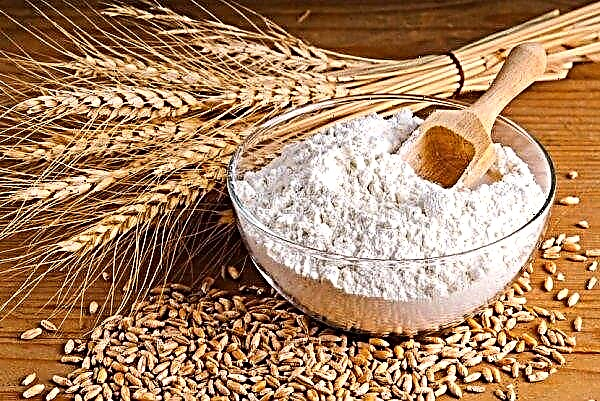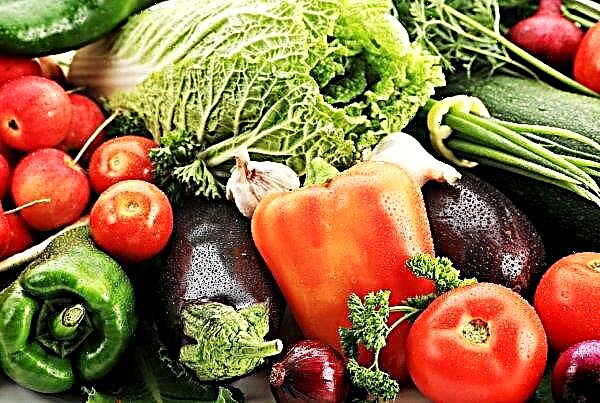There are many reasons for including carrots in your diet. It contains many useful substances that the body needs. It is rich in vitamin A, which promotes eye health, and potassium, which lowers blood pressure and strengthens the heart. What other vitamins, macro- and microelements does carrots contain, we will consider in this review.
The chemical composition and calorie content of carrots
The root crop is best known for its beta-carotene content. It is not surprising that beta-carotene got its name from carrots, which in English is called "carrot". It also contains an amazing combination of phytonutrients, including:
It also contains an amazing combination of phytonutrients, including:
- carotenoids (especially alpha-carotene and lutein);
- hydroxycinnamic acids;
- anthocyanins;
- polyacetylenes.
These substances have powerful antioxidant activity, are associated with improved immune function of the body and a reduced risk of many diseases. How many of them are difficult to even calculate.
- Properties and features of the main compounds present in the root crop:
- alpha-carotene: an antioxidant that is partially converted to vitamin A;
- lutein: one of the most common antioxidants needed to maintain eye health;
- lycopene: an antioxidant whose use can reduce the risk of cancer and cardiovascular disease;
- polyacetylenes: biologically active compounds that can protect against leukemia and the formation of cancer cells;
- anthocyanins: powerful antioxidants that are also pigments.
The nutritional value
The nutritional value of the product is a complex property that determines the content of energy generated during oxidative processes.
The nutritional value of carrots includes:Did you know? The carrot was originally white or purple. Then, as a result of a mutation, yellow appeared, from which the familiar orange was deduced.
- energy value (calorie content);
- biological effectiveness;
- glycemic index;
- physiological value.
 One root crop contains from 86 to 95% water. The edible part is about 10% of carbohydrates. It has almost no proteins and fats. In one medium-sized root crop (60–65 g) you will find only 25 calories.
One root crop contains from 86 to 95% water. The edible part is about 10% of carbohydrates. It has almost no proteins and fats. In one medium-sized root crop (60–65 g) you will find only 25 calories.Nutritional table (per 100 g):
| Calories | 41 kcal |
| Water | 88% |
| Squirrels | 0.9 g |
| Carbohydrates | 9.6 g |
| Sugar | 4.7 g |
| Cellulose | 2.8 g |
| Fats: | 0.2 g |
| Saturated | 0.04 g |
| Monounsaturated | 0.01 g |
| Polyunsaturated | 0.12 g |
| Omega 3 | 0 g |
| Omega 6 | 0.12 g |
| Trans fats | 0 g |
Carrots are characterized by a low glycemic index. It is an indicator of how fast the product raises blood sugar after consumption. The glycemic index of this root crop ranges from 16 to 60 Gh. In raw carrots, it is the lowest, and the highest - in a grated root crop.
Important! Eating raw carrots gives only 3% beta-carotene, but when it is heated, about 40% is already released.
Vitamins
Carrots are an excellent source of vitamins and minerals. It contains a large amount of vitamin A, biotin, vitamin K (phylloquinone) and vitamin B6.
Features of vitamins contained in the root crop:
- Vitamin A (Retinol) - it is found in food of animal origin, it is not found in plants in its pure form, but it is present in the form of beta-carotene, from which vitamin A. pathologies of the mucous membrane and increase the protective function of the epithelium. It is also required for the growth and improvement of immunity.
- Vitamin H (Biotin) - It is used in the body for processing and assimilation of proteins by the body. He is also involved in the metabolism of skin cells.
- Vitamin B6 (Pyridoxine) - It has many functions. Vitamin A affects human growth, normalizes the central nervous system, participates in the circulatory system and blood formation processes, is involved in lipid metabolism and other processes of fat breakdown.

- Vitamin K1 (phylloquinone) - the main substance that activates the processes of blood coagulation. His second task is the synthesis of proteins, including protothrombin. He is also involved in metabolic processes in the liver.
- Vitamin C - the main participant in the processes of tissue regeneration, healing of wound surfaces. Its regulatory function is in demand in restoring the health of the nervous system, eliminating the effects of stress. Vitamin provides normalization of the immune system and resists colds.
- Vitamin E (Tocopherol) - necessary to maintain reproductive functions. It is involved in the biosynthesis of proteins, in tissue respiration and other metabolic processes in the cells of the body.
- Vitamin B1 (Thiamine) - is the main vitamin of the nervous system. It is used in the treatment of polyneuritis, is involved in the metabolism of carbohydrates, and actively affects neuro-reflex regulation.
- Vitamin B2 (Riboflavin) - A participant in the most important redox reactions in the body. It is not synthesized in the body, so it is important to ensure the supply of riboflavin with food.
Important! Vitamin A is a fat-soluble substance, therefore, its absorption requires the simultaneous use of fats in food.
Minerals
The root crop is a good source of dietary fiber, as well as micro and macro elements.
Characteristics of the minerals found in carrots:
- potassium - The main macrocell necessary for intracellular metabolism;
- magnesium - an element with vasodilating and antispastic effects, stimulates intestinal motility and increases bile secretion;
- phosphorus - required for bone growth and normalization of kidney function;
- manganese - is involved in the normalization of the immune system, participates in the processes of intercellular metabolism and supports reproductive functions;
- copper - necessary for growth, as well as the development of the body, is involved in tissue respiration, hematopoiesis, supports the immune system;
- molybdenum - a constituent component of enzymes that affect growth, takes part in metabolic processes involving nitrogen and copper;
- calcium - along with plastic and structural functions, it plays an important role in biochemical processes, it prevails inside the bone tissue cells and participates in various intercellular processes.

Useful properties of carrots for the body
The root crop is best known for its antioxidant properties, thanks to beta-carotene.
- In addition, carrots are useful for:
- reducing the risk of cancer, including cancer of the prostate, colon and stomach;
- reduce the risk of cardiovascular disease;
- increased satiety and reduced calorie intake with subsequent meals;
- use in diet for weight loss;
- improve eye health.
Did you know? The heaviest carrot in the world was brought up by farmer Christopher Qually. She was presented at an exhibition in Minnesota (USA) in September 2017 and weighed 10.17 kg.
Root crop
Regular use of root vegetables affects cholesterol, reducing it. It falls on average by 11% if you eat raw carrots daily for a month.
- Root crops are also useful in the following cases:
- To improve the functioning of the cardiovascular system and regulate its work, reduce the risk of myocardial infarction. Compared to those who did not include carrots in their diet, the risk was reduced by 1/3.
- Prevents night and age blindness.
- They can regulate blood sugar due to the presence of carotenoids in them.
- They can be used as a laxative, and also help with liver diseases.

Carrot juice
Carrot juice is involved in the breakdown of enzymes in the intestine, contributes to the normalization of the gastrointestinal tract, improves the digestive system. In addition, organic compounds in juice are highly active antioxidants that cause excess saliva. Being alkaline, saliva inhibits bacteria that cause tooth decay, halitosis and other oral problems.
- The main properties of carrot juice:
- replacing them with carbonated and other drinks containing sugar, you can lose weight;
- increases secretion of bile, and also accelerates metabolism;
- improves eyesight;
- improves the appearance of the skin;
- strengthens the immune system.

In what form is it best to eat carrots
The benefits of carrots depend on the method of preparation and purpose. So, the lowest calorie is raw carrots. It is in this form that it is part of weight loss programs. If you, on the contrary, strive to gain weight - boil it, and it will become 4 times more calorie, and you will be provided with a feeling of satiety.
If a vegetable is cooked for more than 15 minutes, then the vitamins in it are destroyed, so it’s good to eat raw vegetables, especially for vision.
There is evidence that most vitamins are found in the peel of carrots. This makes juice from fresh young (up to 2-3 weeks of development) root crops the most useful. To treat digestive problems, root crops need to be blanched or boiled. Exposure to heat destroys enzymes, improves the absorption of nutrients. Blanching also preserves most vitamins.
Did you know? The longest carrot, reaching a length of 6.245 m, was raised by Joe Atherton, a UK farmer. The root crop was presented at the exhibition in Malvern on September 23, 2016.
Contraindications and possible harm to carrots
Eating carrots is safe in any form.
But in some situations, you need to consider the properties of this product and their influence:
- when eating a vegetable in large quantities, it can cause yellowing of tooth enamel and even change the complexion to yellowish-orange;
- in the presence of allergies to celery and related plants, the use of root vegetables is not recommended.
 Carrots are an affordable, inexpensive, but very healthy root crop. If you add it to your daily diet, you will not only strengthen your health, but also be able to prevent some ailments with it.
Carrots are an affordable, inexpensive, but very healthy root crop. If you add it to your daily diet, you will not only strengthen your health, but also be able to prevent some ailments with it.













